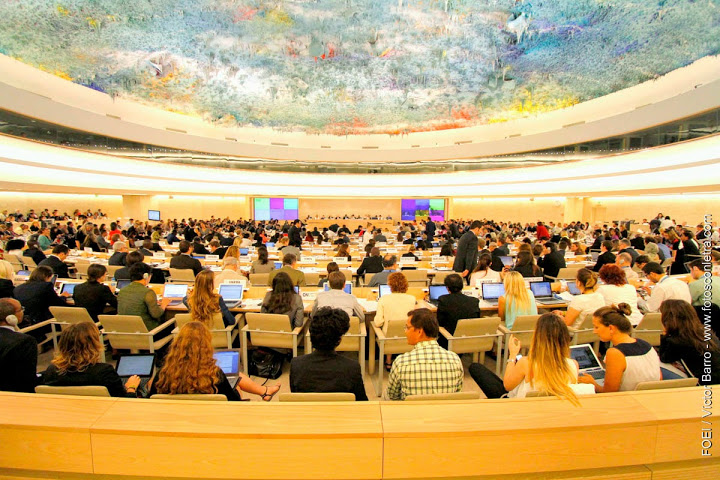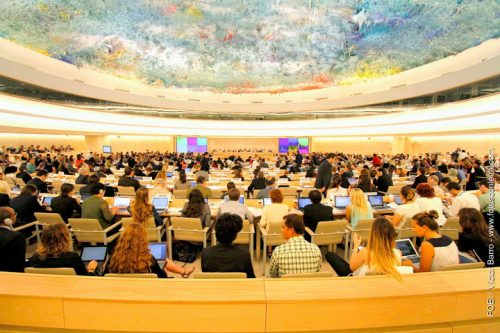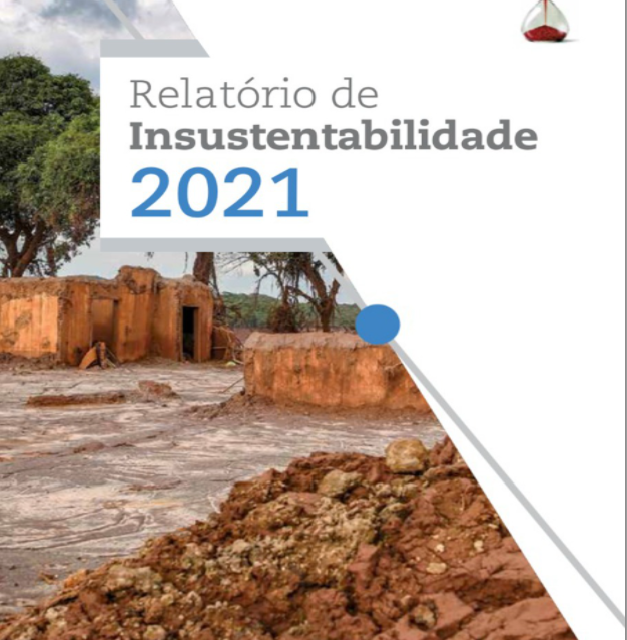

A responsabilização das empresas pelas violações de direitos humanos que cometem teve um marco histórico nesta quinta-feira, dia 26. A 26ª reunião do Conselho de Direitos Humanos da Organização das Nações Unidas, em Genebra, aprovou uma resolução para responsabilizar as transnacionais pelas violações de direitos humanos cometidas no contexto de suas atividades. Foi uma votação apertada, com 20 países votando a favor, 14 contra e 13 abstenções, incluindo a do Brasil. Agora, a ONU cria um grupo de trabalho intergovernamental para a construção das normas vinculantes, que devem contar com a participação das organizações da sociedade civil em 2015, antes da 30ª sessão do Conselho.

A resolução foi apresentada ao Conselho de Direitos Humanos pelo Equador e África do Sul, contando também com o apoio de mais de 500 organizações que também estão em Genebra, entre elas a Justiça Global, que está representada pela advogada Alexandra Montgomery. “A aprovação da resolução para criação das normas vinculantes é importante porque quando estas normas estiverem prontas e adotadas as comunidades terão uma ferramenta a mais para enfrentar as empresas e buscar justiça”, explica Alexandra.
Esse é o passo mais importante nessa temática depois da adoção dos Princípios Orientadores das Nações Unidas sobre empresas e direitos humanos, que levou ao reconhecimento por parte dos Estados e outras partes interessadas que as empresas têm a responsabilidade de respeitar os direitos humanos. No entanto, após a sua aprovação, a comunidade internacional reconheceu que os princípios representam o início de um processo que precisa se aprofundar no sentido da melhorias dos padrões. Os conflitos sociais e a criminalização dos protestos relacionados a investimentos das empresas estão aumentando. O acesso à justiça e à reparação ainda é negado às comunidades e cidadãos de muitos países. As normas e os compromissos voluntários para implementar os direitos humanos não evitaram um recorde dramático de impactos negativos sobre os direitos humanos por parte das empresas hábil de respostas políticas para além de normas voluntárias, incluindo a regulação.
Portanto, a Justiça Global acredita que é necessário prosseguir com esforços para o fortalecimento de marcos regionais e nacionais existentes e lidar com a natureza transnacional de violações de direitos humanos relacionadas a empresas, além de abordar a necessidade urgente de garantir acesso à justiça para as vítimas. Espera-se que, com a nova resolução, o tratado internacional possa ser construído, com a participação da sociedade civil, dos movimentos e das comunidades e que possamos caminhar para a responsabilização de empresas para além do marco da responsabilidade social corporativa.
This Thursday, June 26, 2014 has been a historic benchmark for the accountability of business for human rights violations. The 26th Session of the UN Human Rights Council in Geneva has approved a resolution for the accountability of transnational corporations for human rigths violations committed in the context of their activities. 20 countries voted for the resolution, 14 opposed and 13 abstained, including Brazil. The UN will establish an intergovernmental working group to create binding standards. In 2015, civil society organizations will be able to participate in this process and the IGWG will present its advancements and considerations before the 30th Session of the Human Rights Council.

The resolution was presented to the Human Rights Council by Ecuador and co-sponsored by South Africa. It had the support of 610 civil society organizations and social movements and also 400 individuals. Many organizations are now in Geneva, among them Justiça Global, represented by our attorney Alexandra Montgomery. “The approval of this resolution to create binding standards is important because when these standards are ready and adopted, communities will have a tool to challenge companies and seek justice”, explains Alexandra.
This is the most important step in this subject since the adoption of the UN Guiding Principles on Business and Human Rights. These Principles led to the acknowledgement by the States and other stakeholders that businesses have the responsibility to respect human rights. However, after its adoption, the international community recognized that the principles represent the beginning of a process that need to be deepened in order to be meaningful. Social conflicts, persecution and the criminalization of protests related to business’ investments are increasing. Access to justice and to remedies is still denied to communities and citizens of many countries. Voluntary norms and commitments to implement human rights were not able to avoid a dramatic record of negative impacts on human rights by business. Political responses and domestic regulation are needed since voluntary norms and codes of conduct created by business are not enough.
Therefore, Justiça Global believes that it is necessary to move forward on the efforts to strengthen existing regional and national benchmarks and standards. It also believes that there is a need to have efficient tools to deal with the transnational nature of human rights violations related to business. Moreover, there is still an urgent need to grant access to justice to the victims and to the people affected by the activity of business. With this new resolution, hopefully the international treaty can be developed, with the participation of civil society, grassroots movements and communities in order for the accountability of business beyond the corporate social responsibility framework.







